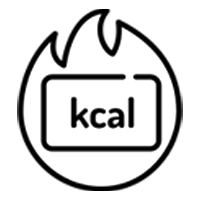Show summary Hide summary
How many calories do we burn doing yoga?

Everything you need to know about yoga
🧘 Want to know how many calories you’re burning during 30 minutes or 1 hour of yoga? Just enter your profile (age, weight, height) and let our tool do the math.
Yoga: A few examples of energy expenditure depending on weight and activity time.
The table below shows you how many calories you can burn practising yoga!
Yoga
Moderate intensity
Kilocalorie expenditure
| Weight | 15 minutes | 30 minutes | 1 hour |
|---|---|---|---|
| 40 kg | 32 | 63 | 126 |
| 50 kg | 39 | 79 | 158 |
| 60 kg | 47 | 95 | 189 |
| 70 kg | 55 | 110 | 221 |
| 80 kg | 63 | 126 | 252 |
| 90 kg | 71 | 142 | 284 |
Everything you need to know about yoga
FIND OUT MORE ABOUT YOGA
Although some people would argue that yoga is a sport, we can safely say that many athletes practice it as a complement to their sport, for obvious reasons.
Indeed, if there’s one virtue of yoga, it’s that it not only makes the body more supple and warmer, but also makes it easier to breathe.
In short, yoga is today a tool of choice for sports preparation, as well as a good ally for body and mind gymnastics, whatever the age of the practitioner.
Some benefits of doing yoga:
- Muscular strengthening: The various yoga postures strengthen the muscles of the whole body. Asanas build strength, endurance and flexibility, particularly in the muscles of the trunk, legs, arms and back.
- Improved flexibility: Yoga stretches muscles, tendons and joints, helping to improve body flexibility. Regular yoga practice increases range of motion, prevents stiffness and improves posture.
- Stimulation of blood circulation: The various yoga postures stimulate blood circulation throughout the body. Stretching and inverted postures promote a better supply of oxygen and nutrients to the cells, as well as more efficient elimination of toxins and metabolic waste products.
- Improved breathing: Yoga places great emphasis on conscious, deep breathing. Pranayama exercises teach breathing techniques that promote slower, deeper, more controlled breathing. This helps to reduce stress, calm the nervous system and improve lung capacity.
- Reduced stress and anxiety: Regular yoga practice promotes relaxation of body and mind. Breathing exercises, stretching postures and meditation techniques help release physical and mental tension, reducing stress, anxiety and sleep disorders.
- Improved concentration and mental clarity: Yoga offers meditation and attention-focusing techniques that promote concentration, mental presence and clarity of mind. This improves concentration, memory and creativity.
- Emotional balance: Yoga teaches techniques for managing emotions and stress. By developing greater self-awareness and control over emotional reactions, the yoga practitioner can cultivate a state of inner balance and calm.
In conclusion, yoga is a holistic practice that offers many benefits for body and mind.
How to calculate the number of calories burned doing yoga
The result displayed is expressed in Kcal and is calculated from the MET (Metabolic Equivalent of Task). The MET for each activity is the result of statistical data and cannot therefore be interpreted as an exact calculation, but rather as an estimate taking into account the MET value and the ratio between the time spent doing an activity and the weight of the individual.
For example: the MET value for yoga is 3. This means that a person practising yoga consumes 3 times more energy than at rest during the session.
Discover the detailed formula to calculate your daily energy expenditure while doing yoga
Consumption in Kcal per minute = (METs*3.5*Weight in kilos)/200
For example, for a 70 kg person doing yoga for 30 minutes:
Kcal consumption per minute = (3*3.5*70)/200 = 3.675 Kcal/mn
So for 30 minutes = 3.675*30 = 110.25 kcal for 30 minutes
All sports in detail!



















































